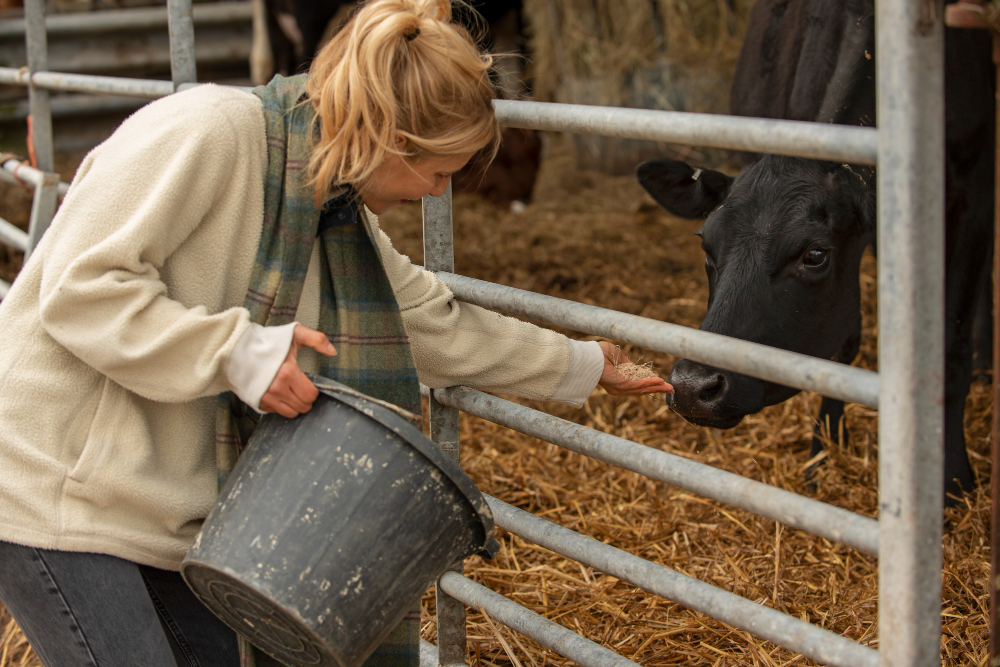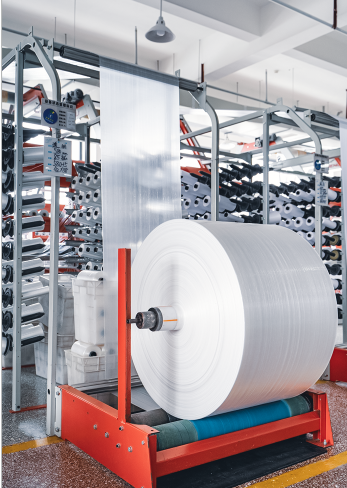
From the horses to the playful pups begging for treats, keeping our animals healthy requires a constant supply of nutritious food. But how does this food get from manufacturer to feed trough?
The answer lies in a humble yet crucial invention: the animal feed bag.
More than just a container, animal feed bags are the silent guardians of animal nutrition. They protect feed from contamination, ensure its freshness during transport and storage, and even serve as branding tools for feed manufacturers.
This comprehensive guide from Xifa Group, a leading manufacturer of high-quality animal feed bags, dives into the world of these essential packaging solutions.
What is an animal feed bag? An animal feed bag is a specialized container designed to store and transport animal feed, including livestock feed and pet food.
Made from durable materials like woven polypropylene, animal feed bags protect feed from contamination, moisture, and pests.
Feed bags also serve as branding tools, displaying essential information and promoting the feed manufacturer.
There are two main categories of animal feed bags: woven polypropylene feed bags and BOPP bags.
Woven polypropylene feed bags—or PP woven bags—are the most common type of animal feed bag. They’re known for their strength, durability, and affordability. They are typically made from woven polypropylene fabric, offering excellent resistance to punctures, tears, and chemicals. Woven polypropylene bags come in various sizes, from small pet food bags to large bulk bags for commercial farms [1].
These premium feed bags offer superior moisture resistance compared to woven polypropylene bags. They are constructed with a laminated layer of biaxially oriented polypropylene film, creating a strong barrier against moisture, grease, and oils. BOPP bags are ideal for moisture-sensitive feed or long-term storage applications [2].
Animal feed bags offer a multitude of advantages over other packaging options:
Feed bags safeguard animal feed from external elements like moisture, dust, and pests, ensuring its quality and nutritional value remain intact;
· Made from strong materials, feed bags can withstand the rigors of transportation and handling without tearing or breaking;
· Feed bags are lightweight and easy to handle, simplifying storage and transportation. They often come with features like handles or self-standing designs for added convenience;
· Feed bags offer a cost-effective solution for storing and transporting animal feed compared to other packaging options.
· Feed bags serve as a marketing tool, displaying the manufacturer’s brand logo, product information, and feeding instructions.
How do you choose an animal feed bag? Choosing the right animal feed bag depends on several factors: the type of feed, size, durability, and cost.
Different types of feed may have specific requirements. For example, moisture-sensitive feed may benefit from BOPP bags, while regular livestock feed might be well-suited for woven polypropylene bags.
Consider the quantity of feed you need to store or transport. Animal feed bags come in various sizes, from small bags for pet food to large bulk bags for commercial applications.
The required durability depends on the handling and storage conditions. Heavier loads or rough handling may necessitate more robust bags.
Woven polypropylene bags are generally more cost-effective, while BOPP bags offer superior moisture resistance at a slightly higher price point.
While the core functionality of animal feed bags remains protection and convenience, there’s more to consider for companies needing them. Here’s a deeper dive into some crucial aspects:
Ensuring the safety and quality of animal feed is a global concern.
The Codex Alimentarius Commission (CAC), a joint initiative by FAO (Food and Agriculture Organization) and WHO (World Health Organization), sets international standards for food safety, including animal feed.
These standards focus on minimizing hazards like contaminants, residues of veterinary drugs, and microbial growth [3].
The materials used in feed bags may also have regulations depending on your location. Research any restrictions on woven polypropylene or BOPP to ensure your bags comply with safety standards.
Beyond basic storage, some feeds may require specific functionalities. For instance, medicated feed might necessitate resealable closures to prevent accidental spillage or contamination. pelleted feed might benefit from breathable bags to prevent moisture buildup.
For efficient storage and transportation, consider the bag’s stackability and ability to be palletized. Woven polypropylene bags are generally well-suited for palletization due to their sturdiness.
With growing environmental concerns, companies are increasingly opting for eco-friendly packaging solutions. Look for feed bags made from recyclable materials like polypropylene or those with a high percentage of recycled content.
While less common, some companies offer biodegradable feed bags made from plant-based materials. These can be a good option for environmentally conscious businesses.
By considering these additional factors, companies can make informed decisions when choosing animal feed bags. The right bag will not only protect your valuable feed but also ensure compliance, functionality, and brand recognition.
Looking for high-quality, customizable animal feed bags that ensure safety, functionality, and brand recognition?
Whether you need PP woven bags or BOPP bags, we can help. Contact Xifa Group today to discuss your requirements and create the perfect bag for your feed.




